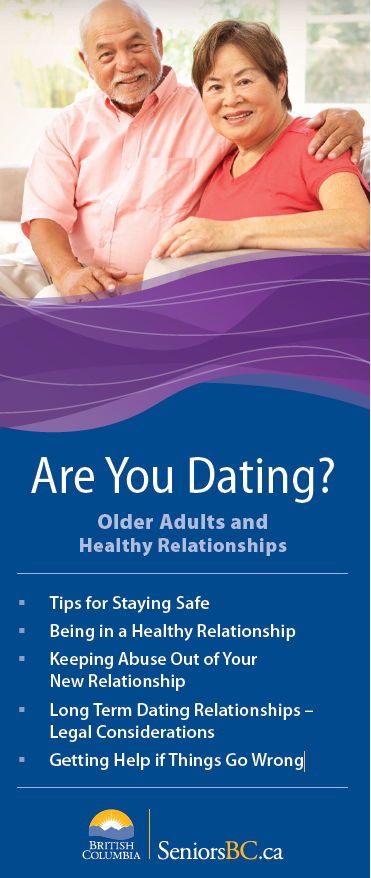Brochures and Factsheets
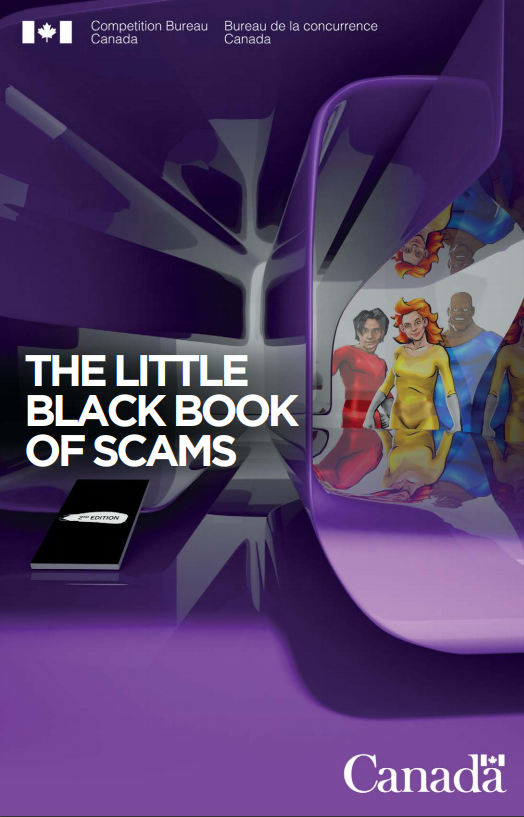
- Fraud fighting 101
- Subscription traps
- Identity theft
- CEO scams
- Health and medical scams
- Romance scams
- Business scams
- Phishing and smishing scams
- Tax scams
- Door-to-door scams
- Emergency scams
- Purchase of merchandise scams
- Sale of merchandise scams
- Red flags: things to watch for
- Reporting a scam
Source: Competition Bureau Canada
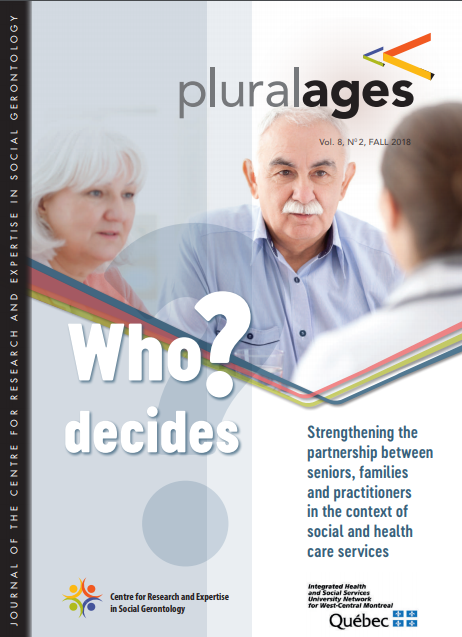
Shared decision-making ensures that interventions are adapted to the complexity of older adults’ health conditions, in accordance with their values and preferences. Concretely, shared decision-making is one of the core components of the patient-centred approach advocated by a number of national organizations, including the College of Family Physicians of Canada. In Quebec, this approach is also a cornerstone of the Plan stratégique 2015- 2020 developed by the Ministère de la Santé et des Services sociaux (MSSS)
Source: CREGES
- Tips for Staying Safe
- Being in a Healthy Relationship
- Keeping Abuse Out of YourNew Relationship
- Long Term Dating Relationships –Legal Considerations
- Getting Help if Things Go Wrong
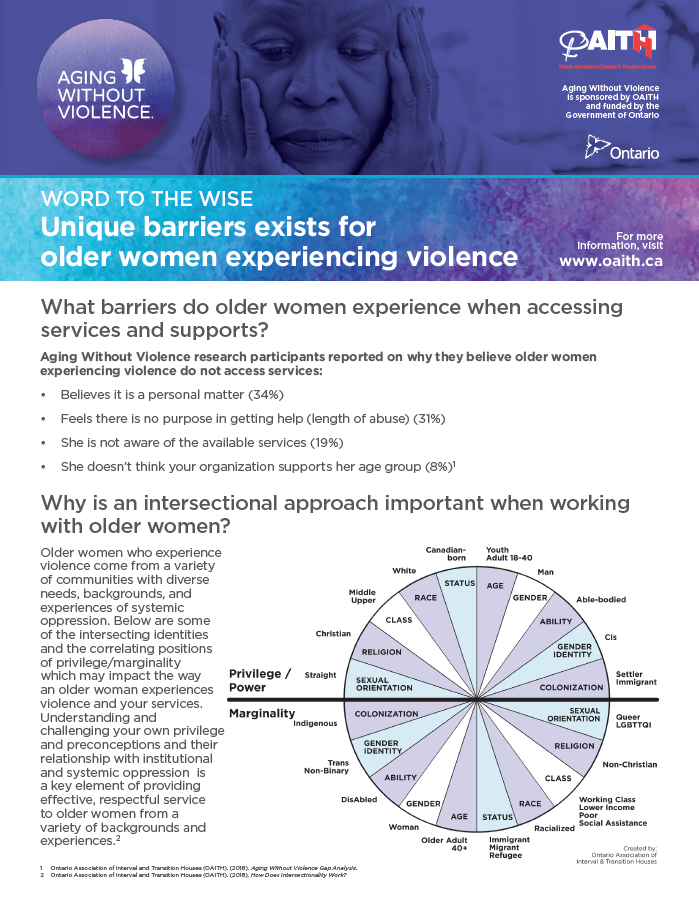
The following is part of our project “Increasing Access to Justice for Older Adult Victims of Sexual Assault: A Capacity Building Approach”, funded by the Justice Canada Victims Fund.Learn more about this project or consult the full list of resources
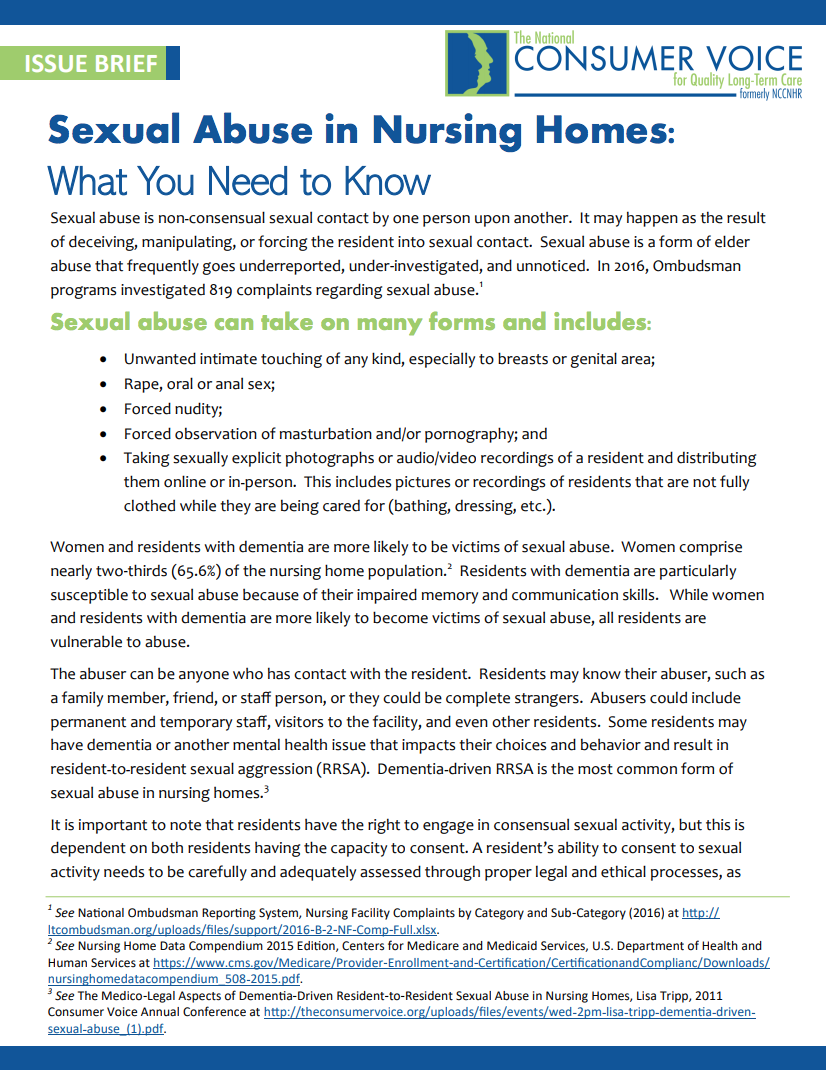 This fact sheet was completed in association with the National Consumer Voice for Quality Long-Term Care for the National Center on Elder Abuse situated at Keck School of Medicine of USC.
This fact sheet was completed in association with the National Consumer Voice for Quality Long-Term Care for the National Center on Elder Abuse situated at Keck School of Medicine of USC.
- What you need to know
- The signs of sexual abuse
- Residents' rights
- What must a facility do when it receives information about a suspected incident of abuse?
- What to do if you suspect sexual abuse is occurring?
- Additional Resources
Source: National Centre on Elder Abuse
Page 7 of 13


